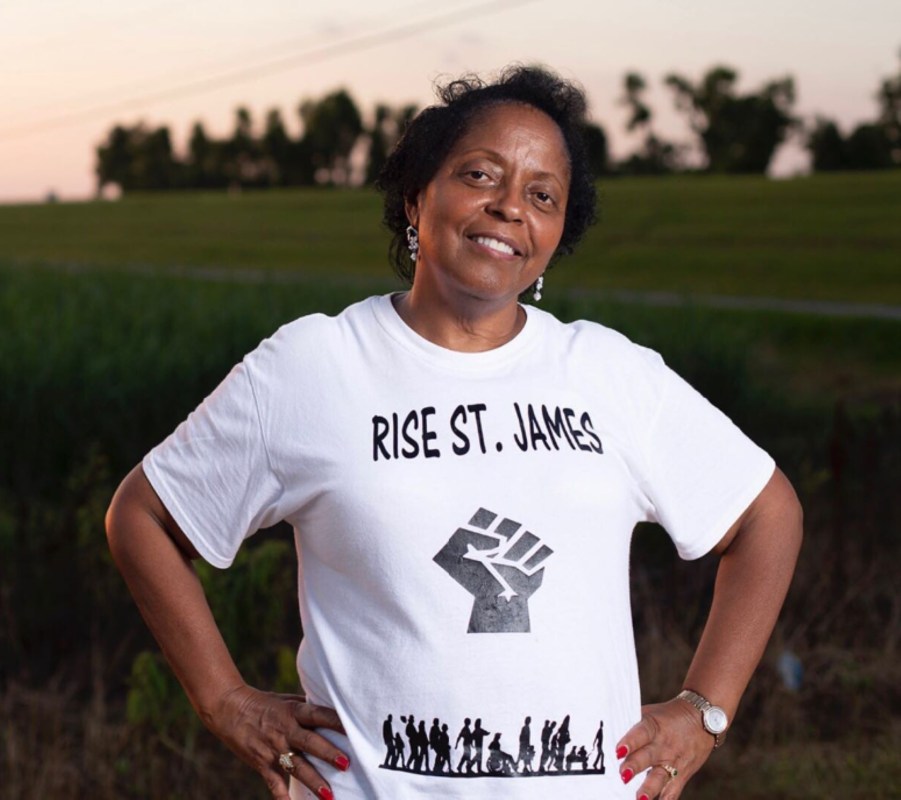Five years ago, Louisiana resident Sharon Lavigne founded her grassroots environmental justice group, Rise St. James, to fight the construction of several chemical plants near her home, reports Inside Climate News.
Lavigne lives in what's called Cancer Alley, a region of Louisiana between New Orleans and Baton Rouge, where more than 200 industrial facilities pollute the surrounding land, water, and air.
Inside Climate News says that residents of this region suffer higher health risks because of toxic chemicals, and Tulane's Environmental Law Clinic recently published a study saying the state's polluters are mostly located near Black communities and other communities of color. "Overall, communities of color had 7-fold to 21-fold higher emissions, depending on the pollutant, than predominantly white communities," the study says.
For many Black residents like Lavigne, adding yet another polluting chemical plant on their doorsteps is intolerable. After a community meeting in 2018 when Lavigne learned of plans for manufacturer Formosa Plastic to build a plant just 2 miles from her house, Inside Climate News reports that she went home and prayed about whether she should move away.
"'No,' he said. That was his voice," says Lavigne. "I said, 'I don't know how to fight.' I said, 'What do you want me to do? God, you want me to fight? Me?'" And, feeling that God had called her to oppose the project, she called a meeting at her house.
That was the beginning of Rise St. James. According to Inside Climate News, the organization filed and won a lawsuit against Formosa Plastic and also blocked the construction of another facility by Wanhua Chemical Group.
To reach these goals, Lavigne has led marches and rallies, spoken with government officials, and worked with other regional and national environmental groups. For her efforts, she received the Goldman Prize, the foremost international award for grassroots environmental activism.
In her fight, Inside Climate News says Lavigne has come up against the Louisiana Department of Environmental Quality, the organization responsible for awarding permits to companies for activities that will generate pollution.
A representative of the department, Greg Langley, says, "LDEQ works with the facilities to make sure their emissions do not exceed protective standards set by state and federal regulations."
However, Judge Trudy White ruled that the agency has failed to meet its obligation to avoid "even unintentionally discriminatory effects" of its permitting practices.
As long as it continues to do so, Lavigne and her organization will continue to stand up for their community. "This wasn't something I planned to do, or something that I wanted to do," she told Inside Climate News. "It was a calling from God."
Join our free newsletter for cool news and actionable info that makes it easy to help yourself while helping the planet.









